‘Once I gained the industry knowledge and experience I knew I was ready to make it on my own’: Kharakapas founder Shilpi Yadav
“I think everyone dreams of creating something of their own,” says Shilpi Yadav. “From the very beginning this is something I really wanted and took the steps to build up to it. I studied and practised design as often as I could, in whatever way I could. The effort I put in was for my passion and the long hours never bothered me. Once I gained the industry knowledge and experience I knew I was ready to make it on my own. The urge to create and design is a form of expression for me. My company Kharakapas is a natural extension of this.”
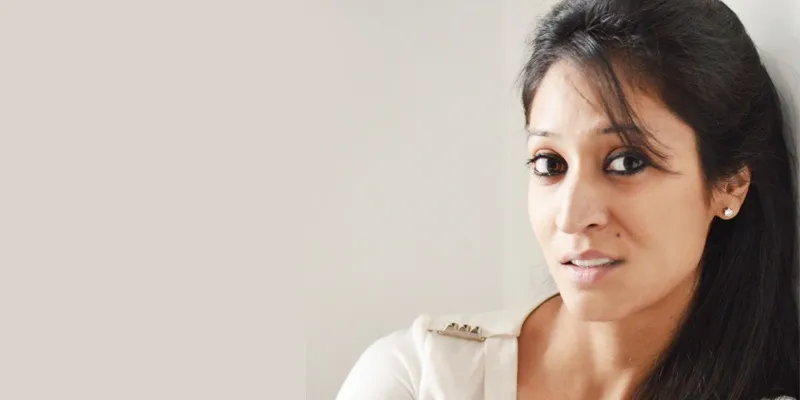
Kharakapas
Launched in February 2015, Kharakapas is a fashion and design startup centred around ushering in age-old Indian textiles and craftsmanship into the 21st century. Free-flowing silhouettes, bohemian designs and minimalist cuts let the attention focus on the ancient weaving techniques and painstaking craftsmanship that go into creating Kharakapas’s clothes. Shilpi explains, “We work very closely with small artisans throughout the country. Small weavers have been the cornerstone of our business. We find our inspiration in their work. So many of them are the last domains of their craft. It is amazing that they have managed to preserve these techniques in the face of modern pressures.”
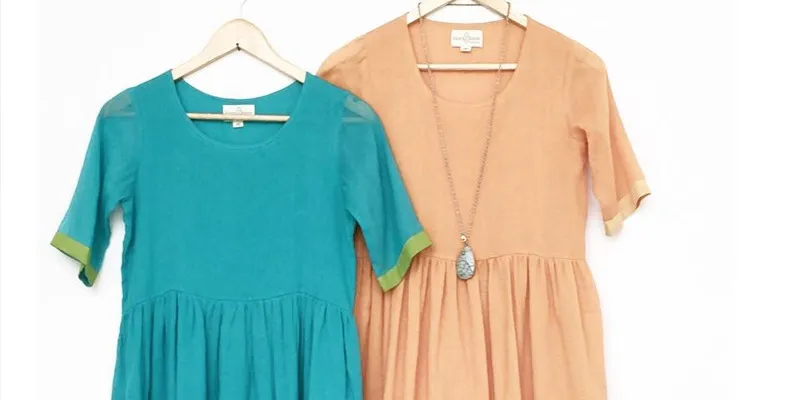
Kharakapas means ‘pure cotton’ in Hindi. The brand’s christening is meant to serve as a constant reminder about what it stands for. “Purity is something that we strive for throughout our designs, in the fabrics we use and the way we want to conduct ourselves as an ethical business celebrating India’s variety in techniques and traditions,” says Shilpi.
In the past couple of years there’s been a small but growing number of designers like Shilpi who are returning to the country’s roots for design textile inspiration to create clothing for a new generation which would not necessarily reach for the saree every time but is conscious about its socially sustainable choices. It is not the Indian youth alone who are powering this trend, according to Shilpi, but curious customers from the world over.
A growing trend
She says, “This growing awareness is not restricted to the domestic market. It is a global consciousness. And
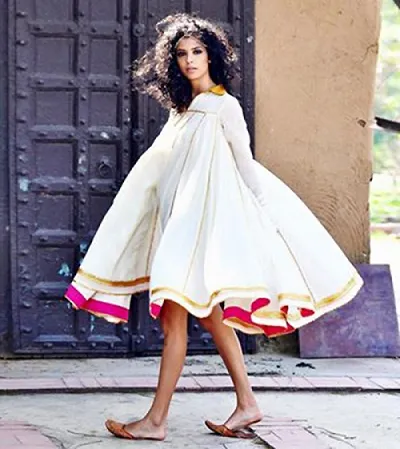
it’s not just about a new generation but also a shift in existing trends. It is not something new or short-lived but an established part of our being from the very beginning. What we are seeing now is that it is coming into the mainstream.”
Shilpi exemplifies her customer base as an example: “Domestically, our biggest supporters are undoubtedly the southern half. In the international market it’s the West Coast of the United States, and Australia. I think it’s the simplicity of the design and the choice of fabrics that works well for these regions.”
Sustainable, but successful?
Given the cottage industries Kharakapas aims to preserve and the artisan livelihoods it seeks to nurture, sustainability has to be more than a buzzword for this startup. Yet the paradox of running a successful but ethical sustainable business could not be greater.
Shilpi says, “Sustainability can’t just be about what you wear or a tagline you put across your business practices. It involves everything from how you chose to live, what you eat and how you contribute to society.
At Kharakapas we have resolved to work with Indian crafts and the handloom industry. We try to do our part by promoting fair trade and attempt to preserve India’s ancient crafts and honour them through our work. We promote greater equity in our trading partnerships through dialogue, transparency, and respect for those we work with. We build long-term mutually beneficial working relationships with our vendors. We see a very positive trend with a desire in people to support this kind of practice.”
Back to roots
Shilpi earned her bachelors in fine arts from Delhi University and then went on to study apparel design from the National Institute of Design. She topped off her education studying merchandise marketing in the world’s startup capital, San Francisco. After returning to India she began her career working at local design studios and climbed up from there. “The last job I had was as the creative head for an e-commerce company before starting Kharakapas,” she adds.
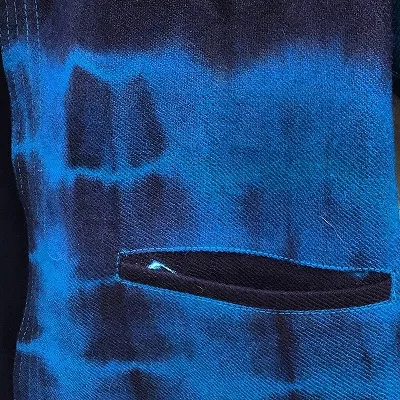
Though with Kharakapas her job description still centres on creating, designing and marketing; the travel involved and the thrill of running your own venture transcends her previous experiences. “We travel across India finding our inspiration from design conceptualising to fabric sourcing and printing. The designing and production happens at our head office in Gurgaon. We keep our designs are simple and minimalistic.
Post production and logistics is also managed out of our head office. We ship worldwide from India. Majority of our sales are online with the balance through offline stores and our own periodic pop-up stores,” she explains.
Funding and scaling
“Kharakapas is funded with blood, sweat and tears,” says Shilpi with all seriousness. “It is a self-funded company,” she expounds. “We were cash positive within the first six months of starting. We are extremely grateful for the overwhelming response we have received so far.”
She continues, “Since this is a bootstrapped startup, we have to plan carefully and execute this plan in small watchful steps. We are happy with the response so far, both domestically and in international markets. We now plan to start working towards a greater offline presence. We are already collaborating with some stores in the domestic market and in the process of expanding to international markets. We have had some successful trunk shows and this has been a stepping stone to expand offline.”
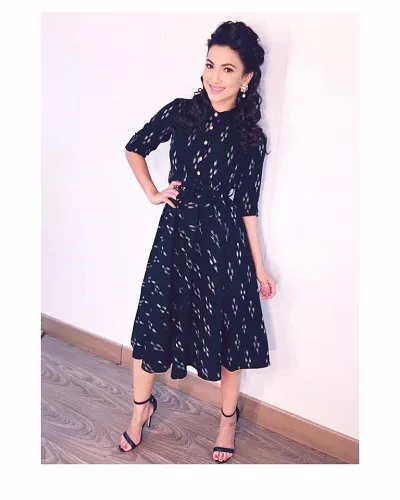
The road ahead is paved with difficulties, but Shilpi is proud of how far she has come. “When we started there was passion but a lot of ambiguity. With any new venture, there is uncertainty and unanswered questions. How will the designs work? Will we be able to take on the challenge of just working with cotton? Today we stand confident and focussed without having lost any of the passion and excitement we felt on day one. Of course there are constantly new challenges and increasing expectations. We have become more demanding of ourselves. But that’s the fun part. Kharakapas started in a single room with two sewing machines in my house and today we have fully-fledged design and production units,” she exclaims.
In this spirit she continues, “Our future is bright. We are excited and optimistic. We are going to make a mark for ourselves.”
Challenges
The pros are dealt a heavy blow by the cons. “Implementation and execution of a flood of new and exciting ideas continues to be a challenge. Another challenge we face has been to build a level of trust and transparency with our vendors. I think traditionally working relationships have been purely transactional for them. Here we are trying to change the mind set to engage them in a long-term working relationship based on trust and mutual respect,” Shilpi says.
Becoming an entrepreneur
Becoming an entrepreneur didn’t come easy to Shilpi but she says she has enjoyed every bit of it. “Today there is no fear of failure and every new mistake is a learning and reason to adapt,” she says. “The journey ahead is a long one but I am determined to enjoy it. The best part of becoming an entrepreneur is that you have a constant surge of energy. The satisfaction that goes with creating something cannot be matched. Every moment and every achievement big or small, drives you forward for the next one.”
Advice
Shilpi’s advice to aspiring entrepreneurs is as straight up as the rest of her business and design philosophy: “Let your passion be your guide. If you have the urge to do something, then don’t wait. There will never be a perfect time. It’s passion that will take you where you want to go.”







